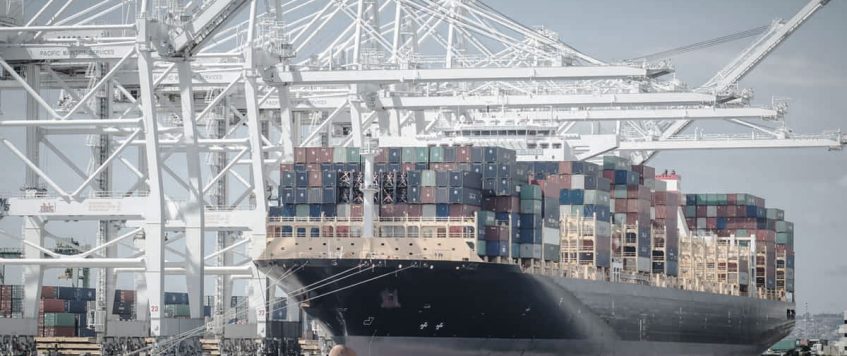-
07
Sep
California Ports Facing Record Container Ship Backlog as Supply Chain Issues Worsen
By: Brendan Menapace
A record 44 container ships are currently waiting to access the ports of Los Angeles and Long Beach. That tops the previous pandemic record of 40, set in February of this year. (In January, 45 ships were anchored outside the ports, but that total included oil tankers.)
The combination of labor shortages, COVID shutdowns at international ports and the holiday season rise in demand has created a perfect storm of shipping issues, culminating in an average wait time of 7.6 days at the Port of Los Angeles and continued price increases for shippers.
“The normal number of ships at anchor is between zero and one,” Kip Louttit, executive director of the Marine Exchange of Southern California, told Business Insider.
These Southern California ports are crucial entry points for goods coming from China. During the COVID-19 pandemic, even earlier in the spring and summer when infection rates declined, the global supply chain has been under near constant duress, causing problems that are now well documented in the promo industry.
Ships are also bigger than they used to be, which only adds to external issues affecting port efficiency and capacity.
“Part of the problem is the ships are double or triple the size of the ships we were seeing 10 or 15 years ago,” Louttit said. “They take longer to unload. You need more trucks, more trains, more warehouses to put the cargo.”
While surging volume shows no sign of abating, COVID protocols continue to slow things down. Dollar Tree CEO Michael Witynski told Business Insider that a cargo ship his company chartered to transport goods from China was denied entry to Chinese ports when a crew member tested positive for the virus. That forced the ship to return to Indonesia to change out its crew, adding two months to the total transit time.
Witynski reportedly also said that the freight time from Shanghai to Chicago rose from 35 days to 73 days, with another carrier executive on the call with Witynski saying that trips are taking 30 days longer than in previous years due to congestion at ports and handling delays.
